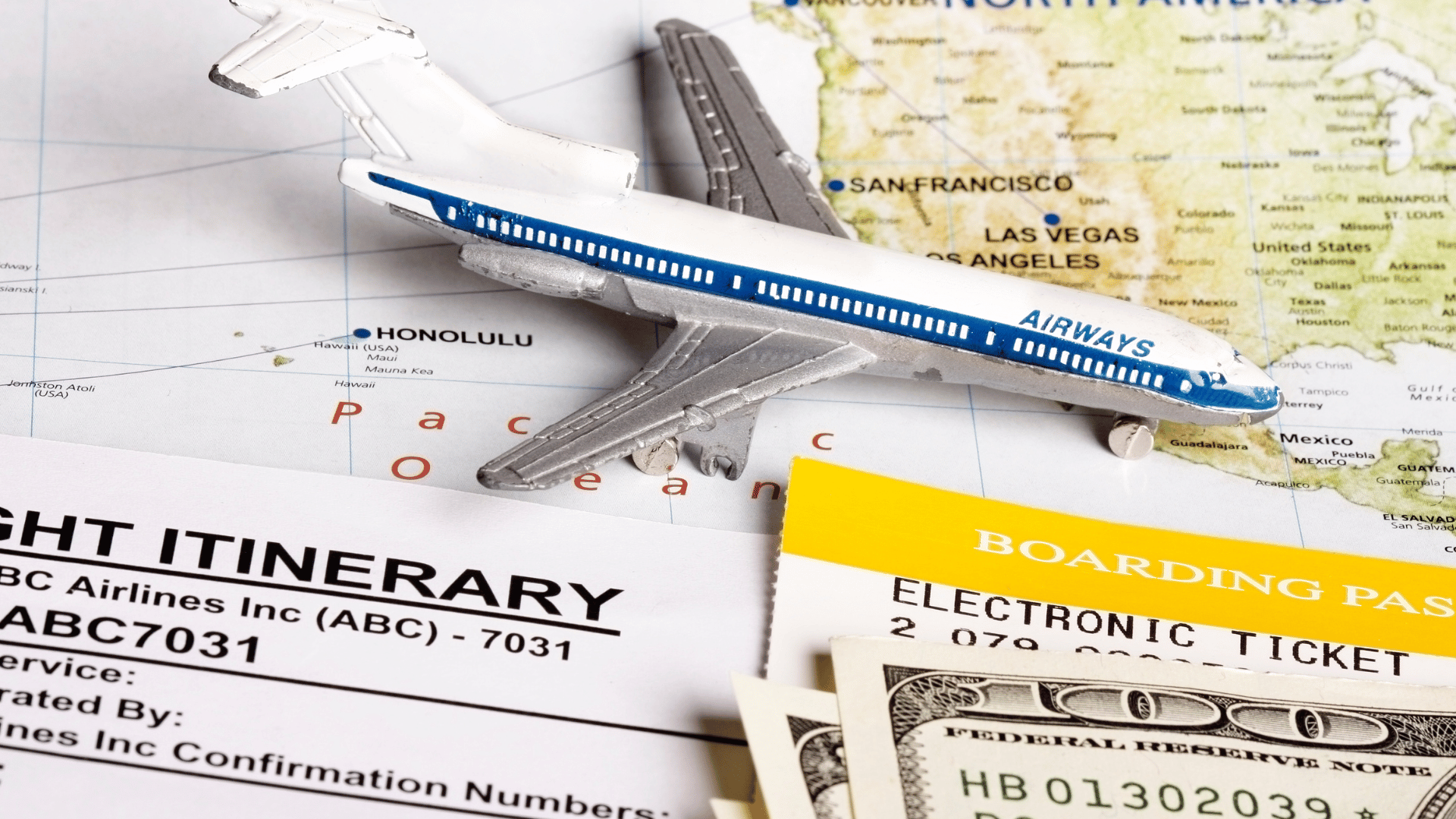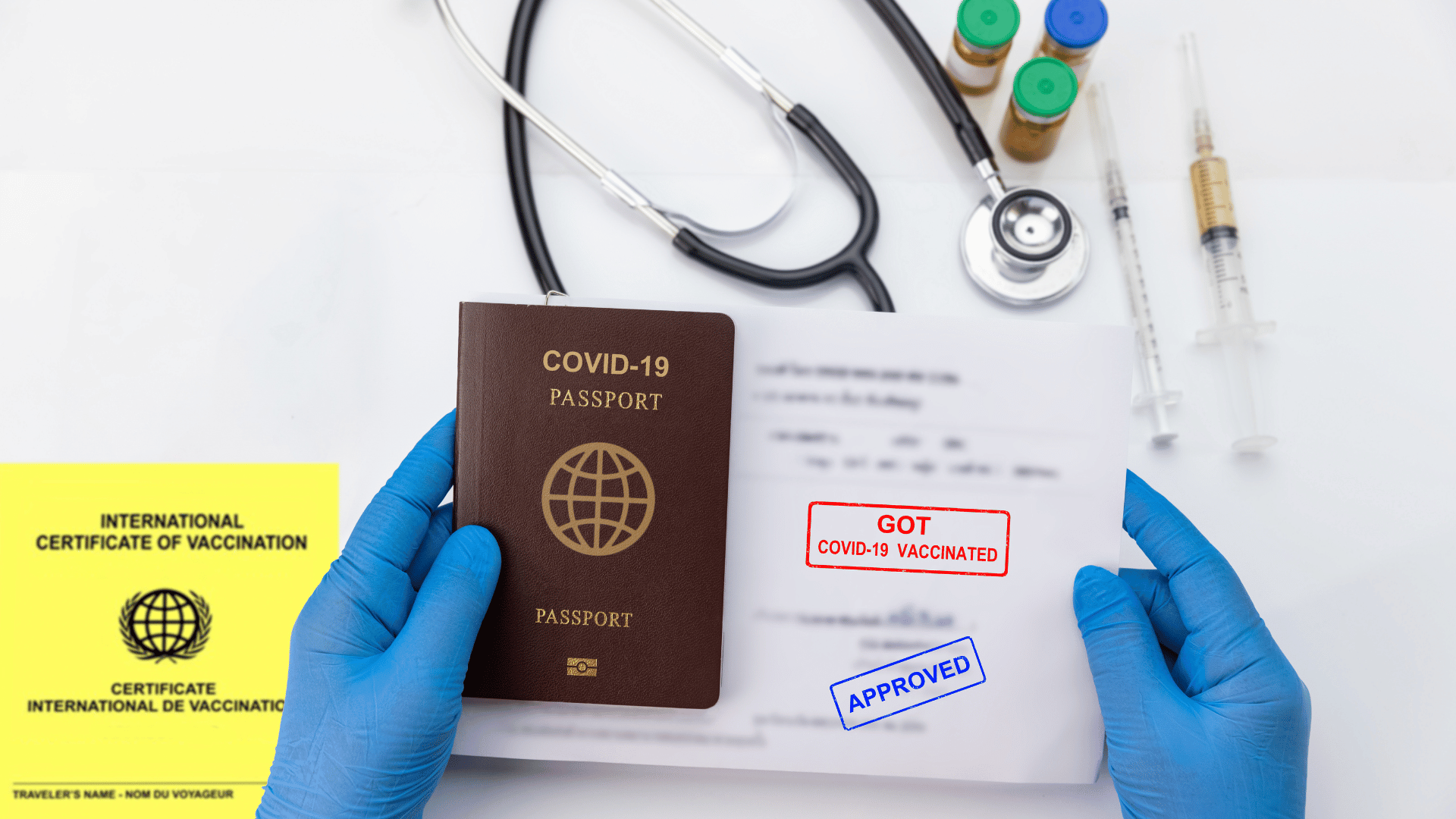Essential Reminders for Your Next Adventure: The Ultimate Guide to Trip Planning
Planning a trip is exciting, but several important details can make a big difference in your overall experience. Whether you’re looking for relaxation or adventure, knowing How to plan a trip can help you avoid common mistakes. In this guide, we’ll explore key tips to make your travel planning easier, and why choosing the right travel company can save you both time and stress.
How to Plan the Perfect Trip
1. Set a Realistic Budget
2. Choose the Right Destination
3. Plan a Flexible Itinerary
4. Book Flights and Accommodation Early
5. Check Passport, Visa, and Health Requirements
6. Pack Smart and Light
7. Purchase Travel Insurance
8. Book Local Transportation
and Activities in Advance
9. Notify Your Bank and Prepare Payment Options
10. Consider a Travel Company for Stress-Free Planning
1. Set a Realistic Budget

A crucial first step in planning a trip is setting a clear and attainable budget. Without a budget, you may find yourself overspending or facing financial stress during your travels. Start by considering the type of trip you’re planning, whether it’s a luxury getaway, an adventure-packed journey, or a relaxed vacation. Then, take the time to account for all potential expenses, including flights, accommodations, meals, activities, local transportation, and shopping. Don’t forget to factor in hidden costs such as visa fees, travel insurance, tips, and airport transfers.
It’s also wise to set aside some extra funds for unexpected expenses, such as emergency purchases, medical issues, or last-minute excursions. This buffer can make the difference between a smooth experience and a stressful one. Researching the destination’s cost of living and currency exchange rates will give you a realistic picture of how much to budget.
By allocating your resources thoughtfully, you can fully enjoy your vacation without financial worries. Using budget travel apps, online planners, or expense-tracking tools can help you stay organized, but don’t overlook the benefits of working with a travel company. A reliable travel agency can not only handle many of the logistics but also offer access to exclusive deals, discounts, and customized itineraries, making your trip more affordable and hassle-free. Proper budgeting ensures that you’ll be able to focus on creating unforgettable memories rather than worrying about your finances.
2. Choose the Right Destination

Choosing the right destination is essential in planning a trip effectively. Your selection should align with the kind of experience you seek, whether it’s a relaxing beach getaway, an immersive cultural city tour, or an exhilarating mountain adventure. Think about your travel goals—do you want to unwind, explore history, embark on outdoor activities, or experience new cuisines? Conduct thorough research on the optimal time to visit each location, as weather patterns and peak tourist seasons can significantly affect your experience. Additionally, look into local events, festivals, and activities that cater to your interests, as these can add a unique touch to your journey.
If you’re traveling with a group or family, ensure the destination offers diverse options that appeal to everyone, from kid-friendly attractions to activities for adventure seekers or culture enthusiasts. It’s also important to consider practical factors like travel restrictions, visa requirements, and health advisories, as these can impact your decision.
Budget is another crucial element to keep in mind when choosing a destination. Some places may offer luxurious experiences at affordable rates, while others might be more expensive than expected due to high demand or seasonal spikes in pricing. By being mindful of these factors, you can select a destination that not only meets your desires but also aligns with your financial plans.
3. Plan a Flexible Itinerary

Creating an itinerary is a crucial step in planning a trip effectively. It provides structure and ensures that you make the most of your time at your destination. Start by listing the must-see attractions, activities, and experiences that align with your interests and goals for the trip. Whether it’s visiting historical landmarks, enjoying adventure sports, or indulging in local cuisine, prioritizing these experiences helps ensure you won’t miss out on what matters most to you.
However, be careful not to over-schedule your days. Striking a balance is vital—packing too many activities into one day can lead to exhaustion, leaving little room to fully appreciate the destination. A well-planned itinerary should include organized activities along with plenty of free time to relax, explore local markets, interact with residents, or stumble upon unexpected sights that aren’t part of the original plan.
For instance, consider booking tours or tickets in advance for popular attractions, ensuring you skip long lines and secure your spot while leaving your afternoons or evenings open for spontaneous outings. Free time in your itinerary gives you the flexibility to adjust based on how you’re feeling or to take advantage of local recommendations and hidden gems you discover during your trip.
Additionally, it’s wise to factor in travel times between activities, whether you’re walking through a city or travelling between destinations. Being realistic about transit time can prevent unnecessary stress and rushing. Always leave some buffer in your schedule for delays, so you’re not racing against the clock.
A travel company can be an invaluable resource in crafting a personalized itinerary that not only optimizes your trip but also ensures flexibility. By leveraging their local knowledge, you can avoid common tourist traps and enjoy unique experiences tailored to your preferences. They can also help with time-saving tips, such as the best times to visit attractions and insider advice on lesser-known spots. A well-rounded itinerary allows you to immerse yourself fully in the experience while also offering the freedom to adapt and savour those unplanned moments that make travel so rewarding.
4. Book Flights and Accommodation Early

An important aspect of planning a trip successfully is booking your flights and accommodations well in advance. By reserving early, you can often secure lower fares on flights and enjoy a wider selection of hotels or rental properties. Utilize flight comparison websites or apps to find the best deals, but make sure to carefully review the terms regarding changes, cancellations, or any hidden fees. When selecting accommodations, take into account important factors such as proximity to major attractions, neighborhood safety, available amenities, and reviews from previous guests to ensure a comfortable stay.
Booking early not only provides peace of mind by confirming your travel arrangements but also allows you to structure your itinerary with greater confidence, knowing that your key logistics are in place. Additionally, many travel companies have partnerships with airlines and hotels, giving them access to exclusive deals, priority bookings, and discounted rates that may not be available to the general public. By working with a travel agency, you can often secure even better rates and more tailored options, enhancing the overall experience while potentially saving money.
5. Check Passport, Visa, and Health Requirements

Before booking international travel, an essential part of trip planning is to ensure your passport is current and to review the visa requirements for your destination. Many countries require that your passport be valid for at least six months beyond your intended travel date, so it’s crucial to verify this early on. Visa requirements vary widely by country; some destinations may also require special permits, entry documents, or vaccinations.
Staying informed about health regulations is equally important, particularly in a post-pandemic world where travel restrictions and health protocols can change frequently. Make sure you’re aware of any mandatory vaccinations, health certificates, or quarantine rules that may apply to your journey.
Partnering with a travel company can simplify this process. They can provide expert guidance on visa applications, passport regulations, and the latest health requirements, ensuring you’re fully prepared and compliant. This helps avoid any last-minute issues and ensures a smoother, stress-free travel experience.
6. Pack Smart and Light

Packing is often an overlooked yet crucial aspect of trip planning, and it can significantly influence your overall experience. Start by creating a packing checklist that includes versatile clothing appropriate for your destination’s climate, essential toiletries, medications, travel documents, and electronics like chargers or adapters. Prioritize comfort and practicality, choosing items that can be mixed and matched to suit various activities.
Keep in mind that many airlines charge for extra baggage, so packing light not only saves you money but also makes traveling more convenient and less stressful. To maximize space, consider packing multi-purpose items like clothing that can be layered or folded efficiently. It’s also a good idea to leave some room in your luggage for souvenirs or any purchases made during your trip.
7. Purchase Travel Insurance

Travel insurance is an essential aspect of trip planning, especially for international journeys. It provides valuable protection against unexpected events, such as medical emergencies, trip cancellations, delays, or lost and stolen luggage. While some travelers may choose to skip insurance, having it can dramatically reduce your financial risk and stress during unforeseen circumstances.
The cost of travel insurance is generally minimal compared to the potential expenses you could incur, such as medical bills in a foreign country or the cost of canceling or postponing your trip. It also provides peace of mind, knowing that you’re covered in case of disruptions, whether due to weather, illness, or other emergencies.
Many travel companies offer tailored insurance packages, ensuring that you receive the right level of coverage for your destination, type of trip, and personal needs. This ensures you don’t overspend on unnecessary coverage while still protecting yourself from significant financial losses. Ultimately, investing in travel insurance can make your trip more secure and enjoyable, giving you the confidence to explore without worry.
8. Book Local Transportation and Activities in Advance

An important part of planning a trip is organizing local transportation and pre-booking activities. Whether you need airport transfers, public transportation passes, or car rentals, arranging these logistics ahead of time can save you time, reduce stress, and allow for smoother travel. Securing your transportation early ensures you avoid the hassle of last-minute bookings and can give you better rates.
Additionally, booking tickets for popular attractions, guided tours, or special events in advance helps you bypass long lines and guarantees entry to must-see sights, especially during peak travel seasons. This also allows you to better structure your itinerary, ensuring a more relaxed and enjoyable experience.
Many travel companies offer assistance with these details, from scheduling airport pickups to arranging private guides or special experiences tailored to your interests. By handling these logistics for you, they allow you to focus on the exciting aspects of your trip without worrying about transportation or reservations, ensuring a seamless travel experience.
9. Notify Your Bank and Prepare Payment Options

When planning a trip, it’s essential to notify your bank about your travel plans, especially for international journeys. Unrecognized transactions can trigger fraud alerts, which may result in your card being temporarily blocked. This can be particularly inconvenient when you’re abroad and need access to funds for essential purchases. By informing your bank of your travel dates and destinations, you can ensure uninterrupted access to your account, allowing you to focus on enjoying your trip.
Additionally, it’s wise to research the current currency exchange rates and understand the best times to exchange money. Consider using a travel-friendly credit card that doesn’t impose foreign transaction fees, as this can save you money during your travels. Some cards even offer perks like travel rewards or insurance coverage, which can enhance your travel experience further.
10. Consider a Travel Company for Stress-Free Planning

A key consideration in planning a trip is whether to organize your travel independently or collaborate with a travel company. While independent planning can offer flexibility and a sense of adventure, partnering with a professional travel company can save you time and elevate your overall experience. Travel experts have extensive knowledge of destinations and can help you navigate the complexities of trip planning, allowing you to avoid potential pitfalls and ensuring a more enjoyable journey.
They provide personalized itineraries tailored to your preferences, budget, and schedule, ensuring a smooth planning process. From arranging accommodations to suggesting activities that align with your interests, a travel company can craft a unique travel experience that meets your needs. Additionally, travel companies often have access to better deals on flights, accommodations, and activities due to established relationships with local vendors, which can help you save money.
One of the most significant advantages of using a travel company is the 24/7 support they typically offer throughout your journey. This means you have access to assistance in case of any emergencies, changes in plans, or unexpected issues, giving you peace of mind as you travel. A reputable travel company will also keep you informed about any travel advisories, health regulations, or entry requirements for your destination, ensuring you are well-prepared.
By selecting a trusted travel company, you can rest assured that your vacation will be seamless from start to finish, allowing you to focus on creating unforgettable memories rather than getting bogged down in the details of planning. Ultimately, the choice between independent travel and working with a travel company depends on your personal preferences, but the latter often leads to a more enriching and hassle-free travel experience.
Conclusion: Mastering How to Plan a Trip the Right Way
Planning the perfect trip requires careful attention to detail, but it doesn’t have to feel overwhelming. By establishing a clear budget, selecting the right destination, creating a flexible itinerary, and booking in advance, you’ll be well-equipped for a smooth journey. Incorporating travel insurance, packing smartly, and organizing local transportation will ensure you’re prepared for any situation that may arise. For those seeking an even easier experience, partnering with a professional travel company can alleviate the stress of planning, providing customized solutions and expert guidance.




